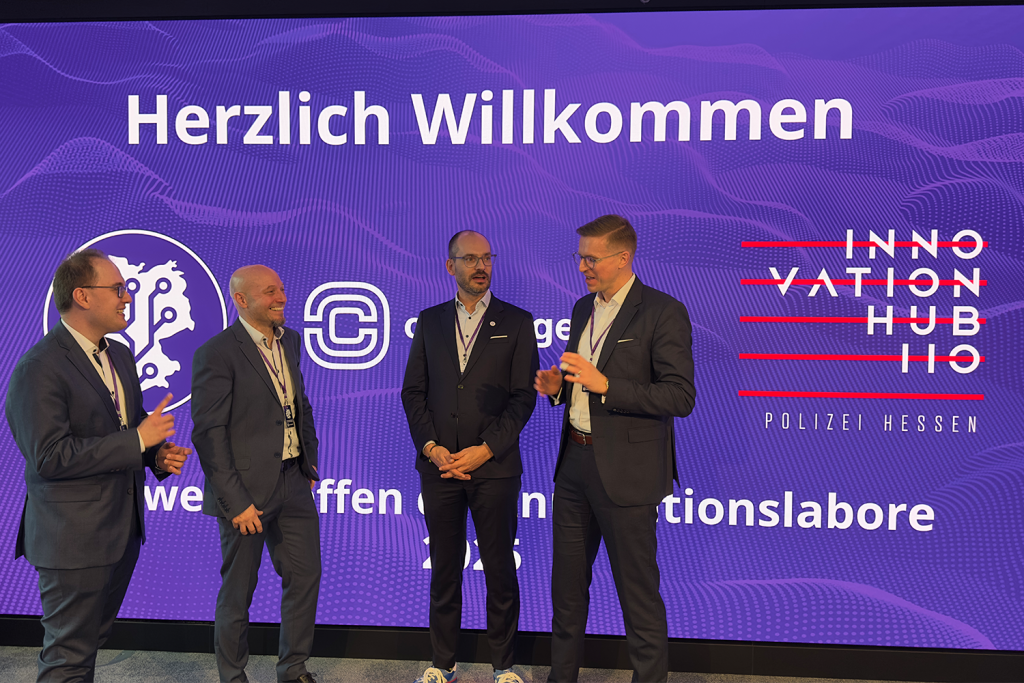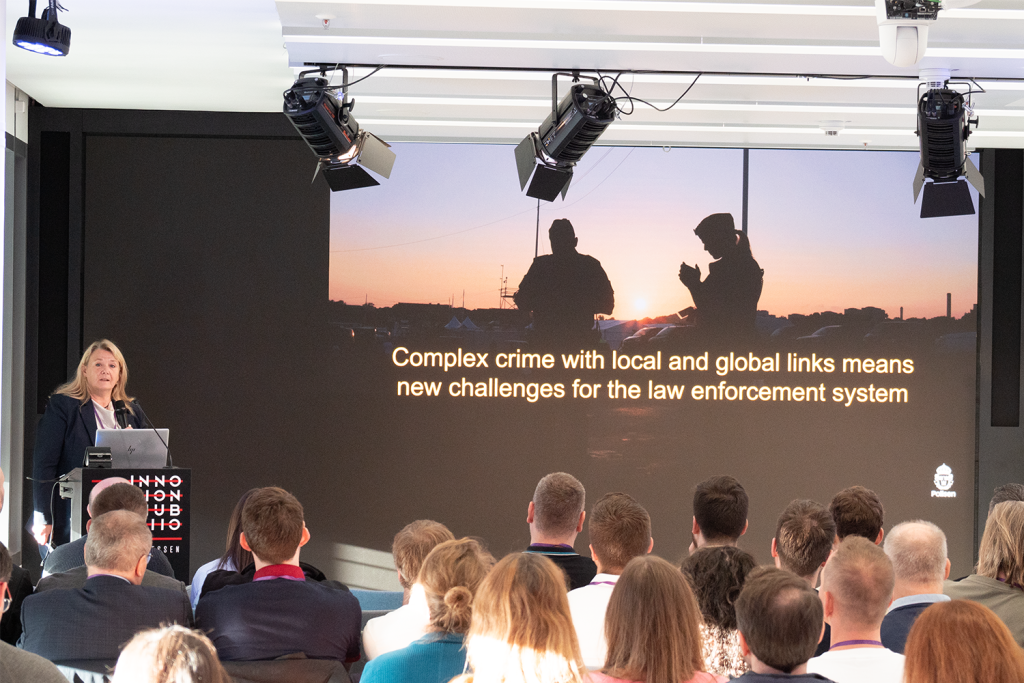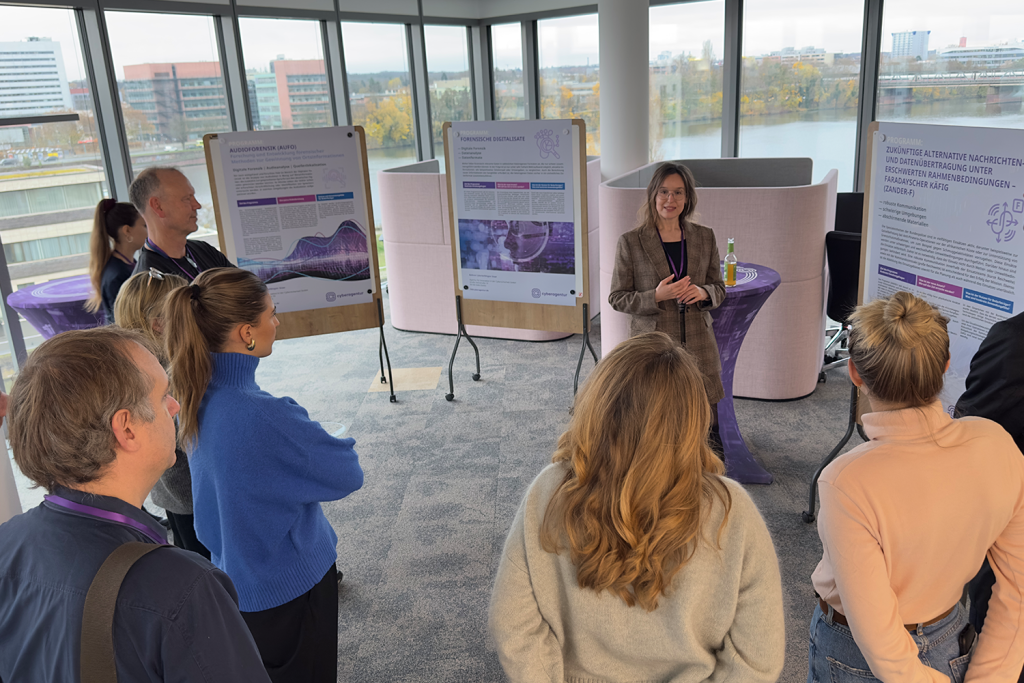Network meeting of police innovation labs brought together national and European future units

The Agentur für Innovation in der Cybersicherheit GmbH (Cyberagentur) and the Innovation Hub 110 of the Hesse Police hosted the 5th Network Meeting of Innovation Labs on November 19 and 20, 2025 at the Hub 110 in Frankfurt. Over 110 participants from Germany and eight European countries spent two days discussing research projects, new methods and international cooperation.
The 5th network meeting of police innovation labs took place on November 19 and 20, 2025 at the Innovation Hub 110 in Frankfurt am Main. The Cyberagentur and the Hesse Police had jointly invited innovation labs, project teams and European partner organizations to come together for two intensive days. The event reached over 110 participants for the first time, making it the largest of its kind to date.
Tim Göttlich, Head of Innovation Hub 110, opened the event by thanking the attendees and emphasizing the importance of suitable framework conditions for progress: “Innovation needs freedom, but we also need a protective space from the individual mechanisms that are against innovation.”
The opening already showed the direction of the event: fewer frontal formats, more exchange, more joint work and, above all, more time for networking. Michael Domberg, Head of the Cyberagentur’s Scientific Service Department, made this clear in his welcome address: “Networking over the two days is the main reason why we are meeting. I am looking forward to the next two days full of impulses, full of workshops where everyone can take away new ideas.”
The first day was dominated by the German-language poster sessions. Research and development projects from the Cyberagentur, the Federal Criminal Police Office, state police authorities and other innovation hubs showcased the breadth of current work – from audio forensics and AI-supported report production to deep fake detection and new approaches to digital crime scene documentation. Open discussion formats enabled the participants to follow the projects in detail and to deepen professional connections directly.
The second day systematically opened up the network meeting to European partners for the first time. Innovation units from the Netherlands, Belgium, Switzerland, France, Italy, Greece, Luxembourg and Malta presented their approaches. Wenche Medin, Chair of European Clearing Board (EuCB) and Strategist Digital Transformation of Swedish Police Authority, opened the day. “Crime is not local, not national. Crime is global,” she emphasized, using Sweden as an example to explain the structure and tasks of the EuCB at Europol. An important impulse to start the subsequent future workshops. Here, the participants worked together to further develop topics that had been submitted in advance.
The international appeal and the high number of participating organizations confirmed the growing importance of the network meeting. Domberg categorized this and referred to the historical significance of such spaces: “Breakthroughs never took place in isolation. They came about where many people came together and combined their ideas. This meeting is such a space – a place where initial ideas are given their finishing touches and where open listening and honest sparring are possible.”
After two days of intensive exchange, it became clear that the network meeting has developed into a central platform for police innovation work in German-speaking countries and increasingly also in Europe. The large number of new contacts, project ideas and cooperation approaches showed how much use was made of the shared space for innovation.


